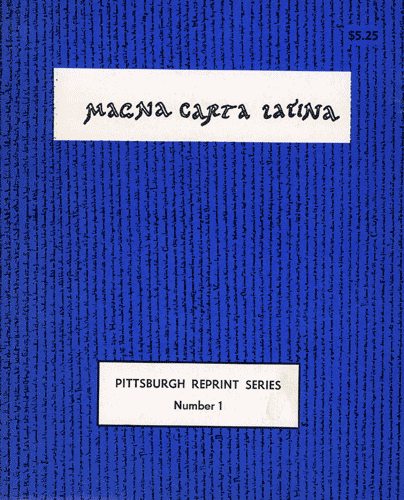Magna Carta Latina

We owe this unusual Latin grammar to the fact that Rosenstock-Huessy’s son Hans flunked Latin at the Putney School. His father felt that at least part of the problem lay in the lack of inspiring Latin texts, so he set out to draw the reader to Latin using the language of Thomas Aquinas, the Magna Carta, and Abélard, rather than that of Caesar. The book begins with a chapter on sung Latin; it rejoices in the heritage of the language, while acquainting the student with the major Latin documents of Europe’s Christian heritage.
“Law and religion,” Rosenstock-Huessy says, “medicine and science become clear to one who uses Latin. Two-thirds of our English vocabulary is Latin. The most precious documents of English constitutional history including the Magna Charta, the basic document of Anglo-Saxon liberties are in Latin. All Christian prayers were minted in the Latin language; secular rhyme and song came into the national languages from Latin sources.”
Working from a draft created with his son’s Latin teacher, Charles Moore, Rosenstock-Huessy produced this edition with his friend Ford Lewis Battles, translator of Calvin’s Latin “Institutes of the Christian Religion” and a summertime neighbor in Norwich, VT.
Paperback, 296 pages.
